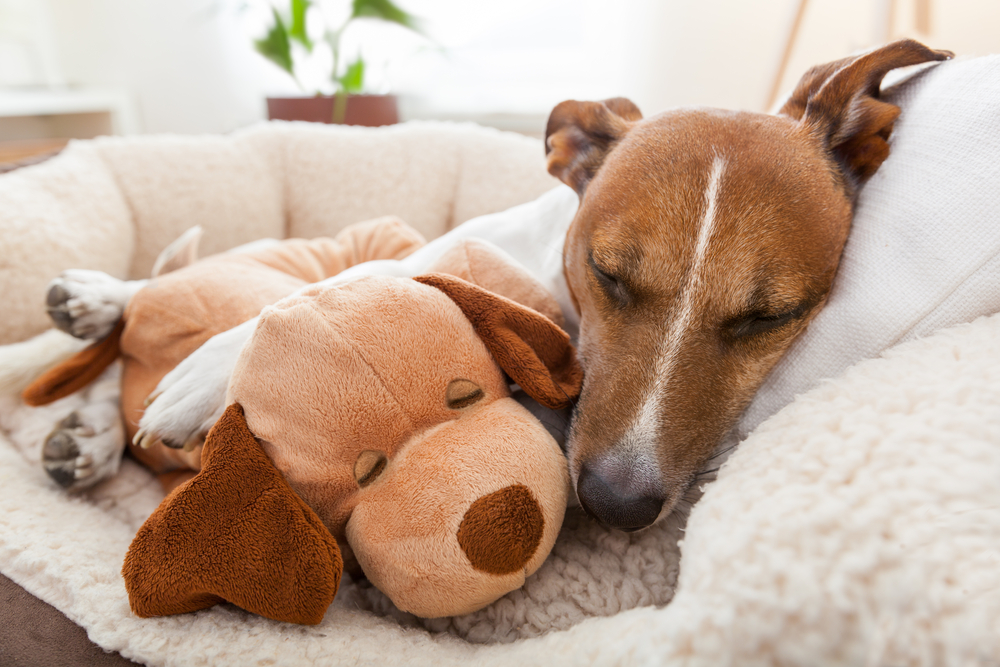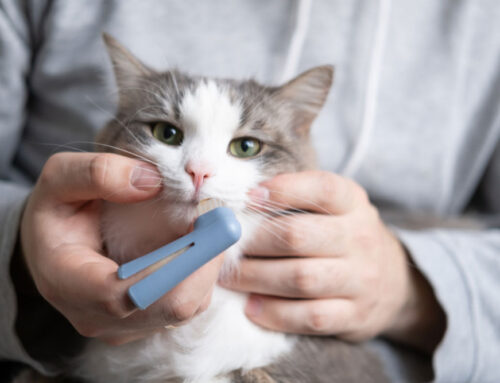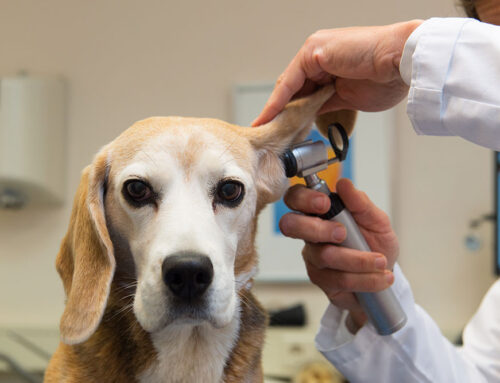Molly the cat and Jack the dog are looking forward to winter holidays at the Miller household. Over the past few years, they have had a lot of fun getting into trouble, and are hoping for new adventures. They are in for a surprise this year, however, because the Millers have researched how to ensure a more pet-friendly holiday. Here are some steps they have taken.
#1: Plan a pet-safe Christmas tree
Molly is a typical cat who enjoys knocking shiny ornaments off the tree, and once managed to tip the whole tree over. Although she got tangled in the lights and vomited from drinking the tree water last year, she has a tradition to uphold and can’t wait to start breaking things again.
The Millers wanted to Molly-proof this year’s Christmas tree, so they set up a more secure tree stand, and attached fishing line from the tree top to the ceiling to keep it from toppling over. They covered the tree water and stopped using water additives. They put the tree lights higher up on the tree and hid the electrical cords to prevent chewing. This will be their first year without glittery tinsel or ribbons, because ingestion can result in a linear foreign body intestinal obstruction. They securely attached all the breakable ornaments using ornament anchors, hanging the more delicate ones out of reach and new, unbreakable ones toward the bottom of the tree. If they still have problems, they will put a dog pen around the tree, and may consider an upside-down or wall-mounted tree next year for the ultimate in pet-proofing.
#2: Decorate with your pets in mind
Molly and Jack, her dog friend, have had previous mishaps with holiday decorations. Molly once burned her paw and almost set the couch on fire while playing with a lighted candle, and Jack ate an entire pine cone and required intestinal obstruction surgery.
The holiday candles are now battery-operated, except for the special ones placed well out of paws’ reach, and pine cones are banished from the coffee table arrangement. The Millers read that mistletoe, holly, and poinsettias can cause gastrointestinal upset and mouth irritation, so are considering artificial versions this year. They are avoiding any flower arrangements that include lilies, because the whole flower, including the pollen, is toxic to cats and can cause kidney failure. Since many essential oils are also toxic to cats, the Millers are forgoing potpourri and using natural greenery on the mantle for a lovely pine scent.
#3: Avoid sharing holiday foods with your pets
Jack knows holiday feasts are coming soon, because he sees more food carried into the house and put away. He anticipates some tasty table scraps and a few sneaked appetizers. Last year, he found the most delicious fatty meal of crispy turkey skin—his favorite—in the garbage, but he ended up in the veterinary hospital for two days with pancreatitis.
This year, the Millers have a firm “no table scraps” policy for holiday dinners, and a tightly sealed garbage container. Mrs. Miller loves to bake, but will keep a close eye on the uncooked dough, because pets can develop painful intestinal bloating and alcohol poisoning from eating yeast, which will ferment in their stomach. The Millers will also now be especially careful with onions, garlic, and chives, which can cause life-threatening anemia in cats, and raisins and grapes, which can cause kidney damage in dogs. Chocolate of any kind is toxic to pets and will stay in the cupboard, as well as any xylitol-containing sugar-free products. When the Miller household toasts the New Year, they will keep track of their drinks, because pets and alcohol don’t mix.
#4: Help your pets stay calm

During the Millers’ New Year’s party last year, Jack scooted out the door. Thankfully, neighbors found him and called, because Jack had a current nametag and microchip.
The Millers now have a “safe space” for Molly and Jack in the back room to help them stay calm amidst holiday fireworks and new noises, and prevent them from getting into trouble. The safe space has music or TV, treats, toys, water, a comfortable bed, a litter box for Molly, and food puzzles. Jack also has a prescription for anti-anxiety medication to help him feel less stressed from the fireworks.
This year, make a holiday pet-safety list, check it twice to ensure you avoid holiday hazards, and let all your family members and guests know your holiday “pet rules.” Keep the phone numbers of the Pet Poison Helpline, ASPCA Poison Control Hotline, and Palm City Animal Medical Center, as well as the local pet emergency clinic, in a visible, easily accessible location.
Our Palm City Animal Medical Center team wishes you and your family a safe, happy holiday season. Don’t hesitate to contact us if you have questions about helping your pet get safely through the holidays, or you suspect they got into mischief and need veterinary care.








Leave A Comment